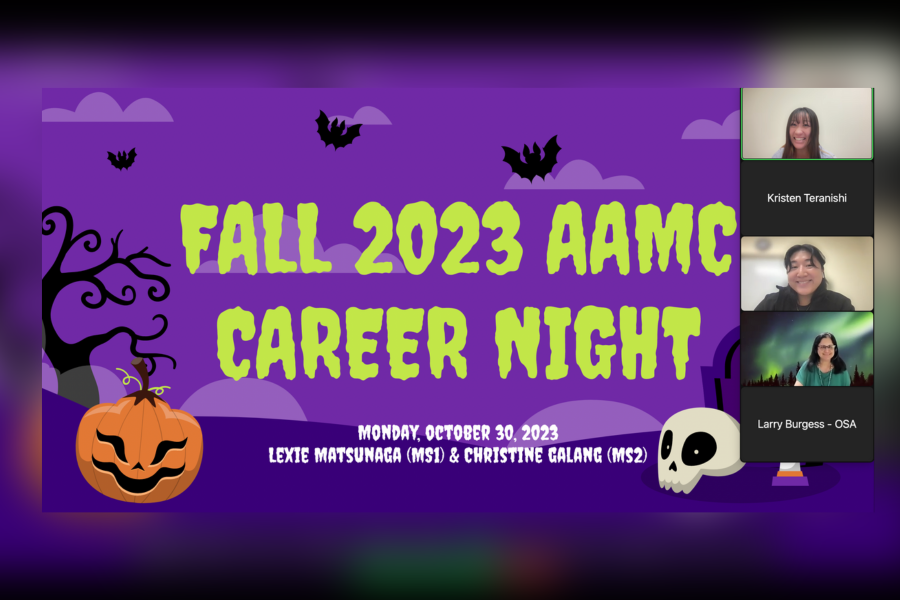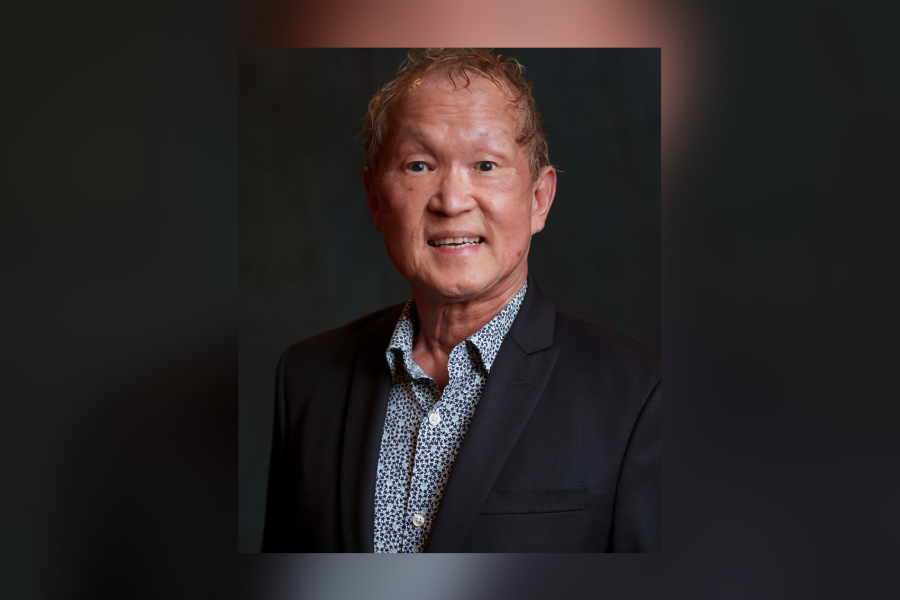
When students decide which residency to pursue after medical school, they usually reach out independently to physicians or lean on information gathered during their Longitudinal clinical program (LCP). Those methods can be tedious and time-consuming, so for more than 20 years, students at the John A. Burns School of Medicine have been exposed to a broad spectrum of specialties through its annual career night. It's a three-hour, one-stop-shop event that allows students to connect one-on-one with physicians.
"We get to ask what their day-to-day looks like and how we can get to residency. We learn about the patients that we would be treating, so it's really nice to get that comprehensive look at a specialty. I think Career Night is honestly one of the best things that I've gotten to be a part of here at JABSOM," said Christine Galang, a second-year student and event organizer.
Dozens of first and second-year JABSOM students took part in the annual tradition that brings clarity to their career path. First-year medical student Lexie Matsunaga entered Career Night thinking she wanted a career in Internal Medicine.
"I was looking at hematology, oncology, just because of family history and things like that," Matsunaga said.
An eye-opening experience at Career Night solidified Matsunaga's desire to do internal medicine, but she's also open to exploring other paths.
"I heard a lot of interesting things about OB-GYN. I'm considering General Surgery. If anything, it was almost more difficult for me now because I heard all these different perspectives," Matsunaga said. "I know the pros and cons and what they love about their specialty. It was honestly awesome hearing everything because I can see my personality being more suited towards a certain route."
According to the National Resident Matching Program, 47.7 percent of U.S. MD seniors matched with their first-choice programs. 73.4 matched to one of their top three choices. In this highly competitive environment, students leaving Career Night with an interest in more than one specialty sets them up for a positive Match Day experience.
"I think that's what Career Night does for a lot of us," Matsunaga said. "It gives us multiple options while strengthening my desire to follow my first specialty choice. I think it's a really beautiful tool, and I hope that a lot of students also feel the same way."
"When you're going through medical school, you learn about the disease process and each organ system specifically, but it's hard to really know the intangibles of a career," Galang said. "Usually, our first question to every physician is, 'What does your day-to-day look like?' The reason why we ask that is because we should be comfortable with the day-to-day of our specialty. That's what we'll be doing throughout our lives, so Career Night helped me to see what works for me and what doesn't work for me. Without Career Night, I probably wouldn't know as much as I do now about the breadth of medicine."
Since the pandemic, Career Night has been held virtually, but the essence of the program remains intact. Physicians volunteer their time to share their experiences and insights with our students. Organizers like Matsunaga, Galang, and Dr. Wendell Foo recruit the physicians. The 1976 JABSOM graduate has assisted in organizing Career Night for more than 20 years.

"We all love to give back and encourage students to enter our specialties," Dr. Foo said. "I get excited when Match Day comes, and I find out that someone is going into my specialty. My colleagues celebrate. We get together with students and talk more about it. It makes us happy. As time goes on and we approach retirement, we want to encourage any doctors to come into our specialty to continue to provide care for the people of Hawaiʻi. When the students get a chance to sit down and talk to us, I think it kind of opens up a light bulb, and they say, 'I think this is something I might be interested in.'
Dr. Foo takes great joy in seeing those sparks of interest at Career Night.
"Some of us offer the opportunity for students to rotate with us. If they have a week or two weeks from their studies, we'd be happy to have them come by, come into the operating room, and see what it's like. This is how they really get a feel of it," Dr. Foo said.
The generosity shown by Dr. Foo and the physicians who participate in Career Night inspires future physicians like Matsunaga.
"It's just unbelievable that even though they're so busy with their work and personal lives, they are still taking time for the next generation of doctors. It's just really heartwarming," Matsunaga said. Turning to Galang, she said, "It's almost like when we become physicians, we have to come back and pay it forward."